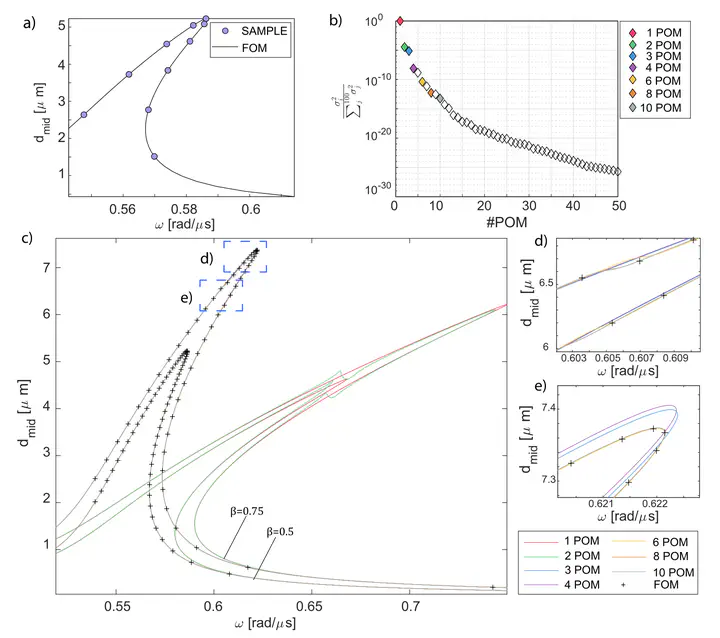
Abstract
We apply the Proper Orthogonal Decomposition (POD) method for the efficient simulation of several scenarios undergone by Micro-Electro-Mechanical-Systems, involving nonlinearites of geometric and electrostatic nature. The former type of nonlinearity, associated to the large displacements of the devices, leads to polynomial terms up to cubic order that are reduced through exact projection onto a low-dimensional subspace spanned by the Proper Orthogonal Modes (POMs). On the contrary, electrostatic nonlinearities are modeled resorting to precomputed manifolds in terms of the amplitudes of the electrically active POMs. We extensively test the reliability of the assumed linear trial space in challenging applications focusing on resonators, micromirrors and arches also displaying internal resonances. We discuss several options to generate the matrix of snapshots using both classical time marching schemes and more advanced Harmonic Balance (HB) approaches. Furthermore, we propose a comparison between the periodic orbits computed with POD and the invariant manifold approximated with Direct Normal Form approaches, further stressing the reliability of the technique and its remarkable predictive capabilities, e.g., in terms of estimation of the frequency response function of selected output quantities of interest.